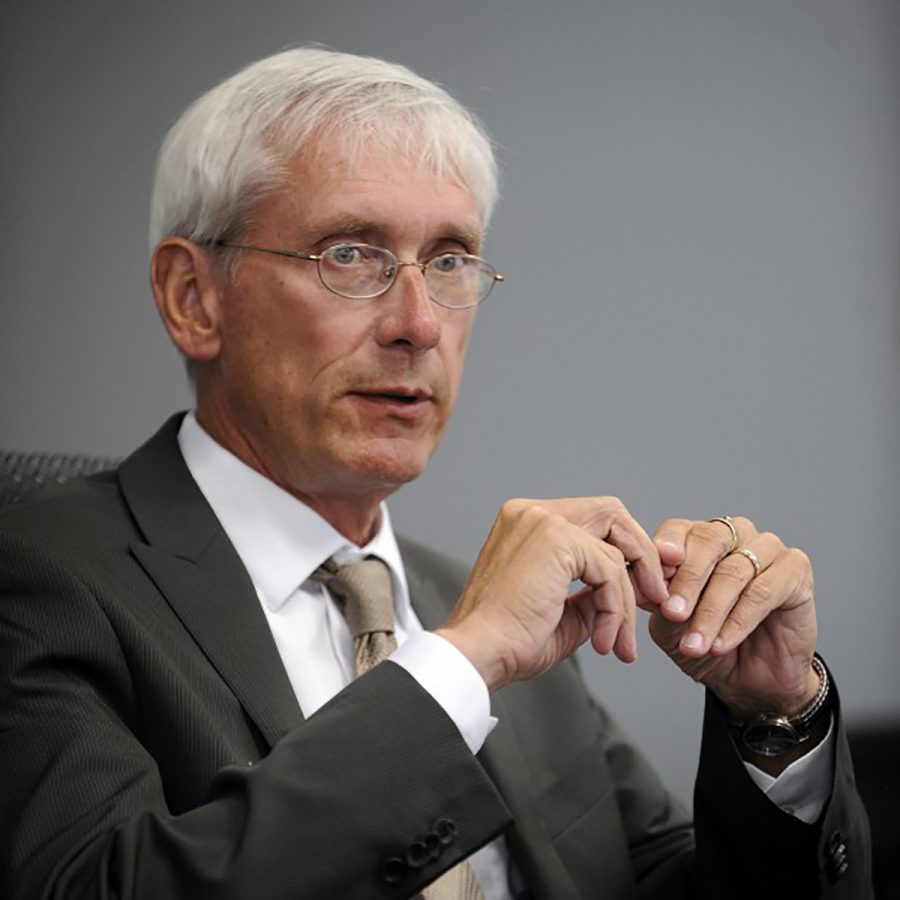Reevaluating the issues of public schooling
Federal and Wisconsin governments push for education reconstruction that will set students back
More stories from Sam Farley
Photo by submitted
Wisconsin superintendent Tony Evers fights others’ aims for public school takeover
Ever since the formation of the United States as a country, education has served as America’s backbone; it is the foundation from which our country grows.
Specifically, public education offers every individual the opportunity for personal growth that they need to be able to improve the future of our nation. This privilege is a core ideal of our democracy, but, nowadays, the specifics of its implementation are not so easily agreed upon.
The superintendent of Wisconsin schools, Tony Evers, is fighting against a proposal by challenger John Humphries that would reorganize the lowest-performing public schools, many of which students of low-income attend. These institutions would be discontinued and converted into charter or private voucher schools.
Humphries, former Dodgeville school administrator and candidate for the superintendent position, would break up pre-existing schools and, with it, pre-existing student-faculty relationships.
These schools’ largely impoverished student bodies would be redistributed to entirely new settings and people. What many of these kids need, however, is continued support from and strong relationships with people that care.
According to a study conducted by the National Center for Education Statistics, low-income students fail to graduate at five times the rate of middle-income families and six times that of high-income kids.
Low-income families often work non-standard hours for jobs that lack adequate benefits as they struggle to make ends meet. This sacrifice leaves parents with little time to read to their children, help with homework, and attend to other needs their kids have. These children need help at home, not a change of academic scenery.
Unfortunately, Humphries is not the only supporter of this dismantling of public schools.
Newly elected Secretary of Education Betsy DeVos is a long-time advocate for private, charter, and voucher schools over public schools. DeVos, who served as a chairwoman of the Michigan Political Party, worked at spreading “school choice” throughout the state.
Her work was a fluke, according to Michigan Education President Steven Cook in an editorial titled “Betsy DeVos could ‘destroy’ public schools with vouchers, Michigan educators worry.”
“In Michigan, we know firsthand how disastrous DeVos’ ideology is, as she has spent decades wielding her family’s money and influence to destroy public education and turn our schools and students over to for-profit corporations,” Cook said.
According to the article “Betsy DeVos and the twilight of public education” authored by Detroit Free Press editor Stephen Henderson, charter and private voucher schools in Detroit–which make up 79 percent of the state’s total–are failing miserably in academic performance. Charter schools like Detroit Community Schools, Woodward Academy and Hope Academy all have test scores that are among the lowest in the state, with the latter falling in the first and lowest percentile.
Instead of financially supporting the schools to provide them with increased helpful resources for students, DeVos’ solution is to get rid of the worst institutions and simply replace them with a different type of low-quality facility.
Kari Selleck, the curriculum director at Owosso Public Schools and who has been in education for over 30 years, questions DeVos’ credibility in this area.
“I have difficulty with someone being appointed to that position who has not served as a teacher or an administrator and has not served in public education at all. That’s very, very worrisome,” Selleck said.
For myself, as a student that graduated from a public high school and experienced the system firsthand, I find that very worrisome as well. My public education was a very positive experience and although not all teachers are A+ material, many faculty go out of their way to reach out to students, but that bond needs time to develop.
Students that are struggling need someone who cares. Humphries and Devos’ plans do not attend to this issue, but would instead create unnecessary change for students.

